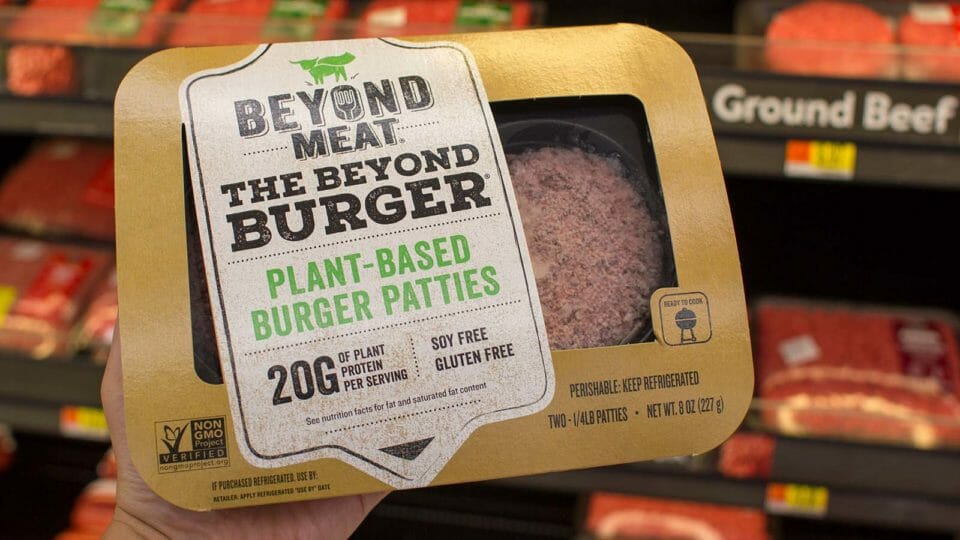The popularity of plant-based meat is increasing as meat processing plants face closures.
In recent weeks, major meat processing plants operated by industry giants such as Tyson and Perdue have been shutting down due to the impact of the COVID-19 pandemic on their workforce and supply chains. Tyson even expressed concerns about the potential breakdown of the food supply chain in an advertisement published in The New York Times, Washington Post, and Arkansas Democrat-Gazette.
The production of popular meats like beef, poultry, and pork has slowed down, raising the specter of a nationwide meat shortage. In response to this threat, investors are turning to plant-based alternatives, with Beyond Meat, a key player in the plant-based meat sector, witnessing a 40% increase in its stock value last week and an additional 4% rise in trading today. Beyond Meat’s production processes involve greater automation compared to traditional meat processing plants, making it less susceptible to labor shortages caused by the pandemic.
Aside from concerns about meat shortages, Beyond Meat’s profitability has also been bolstered by its recent foray into the Chinese market. As China gradually emerges from the lockdown imposed during the pandemic, there is a growing demand for reliable sources of plant-based meat. Major restaurant chains are taking notice, with Starbucks in China introducing three new dishes featuring Beyond Meat: pesto pasta, lasagna, and spicy wraps.
Despite these positive developments, Beyond Meat has faced challenges over the past year. The company’s stock prices have dropped by 50% from their post-IPO levels, and it faces stiff competition from rivals like Impossible Foods as well as established brands like Nestle and Kellogg.













































